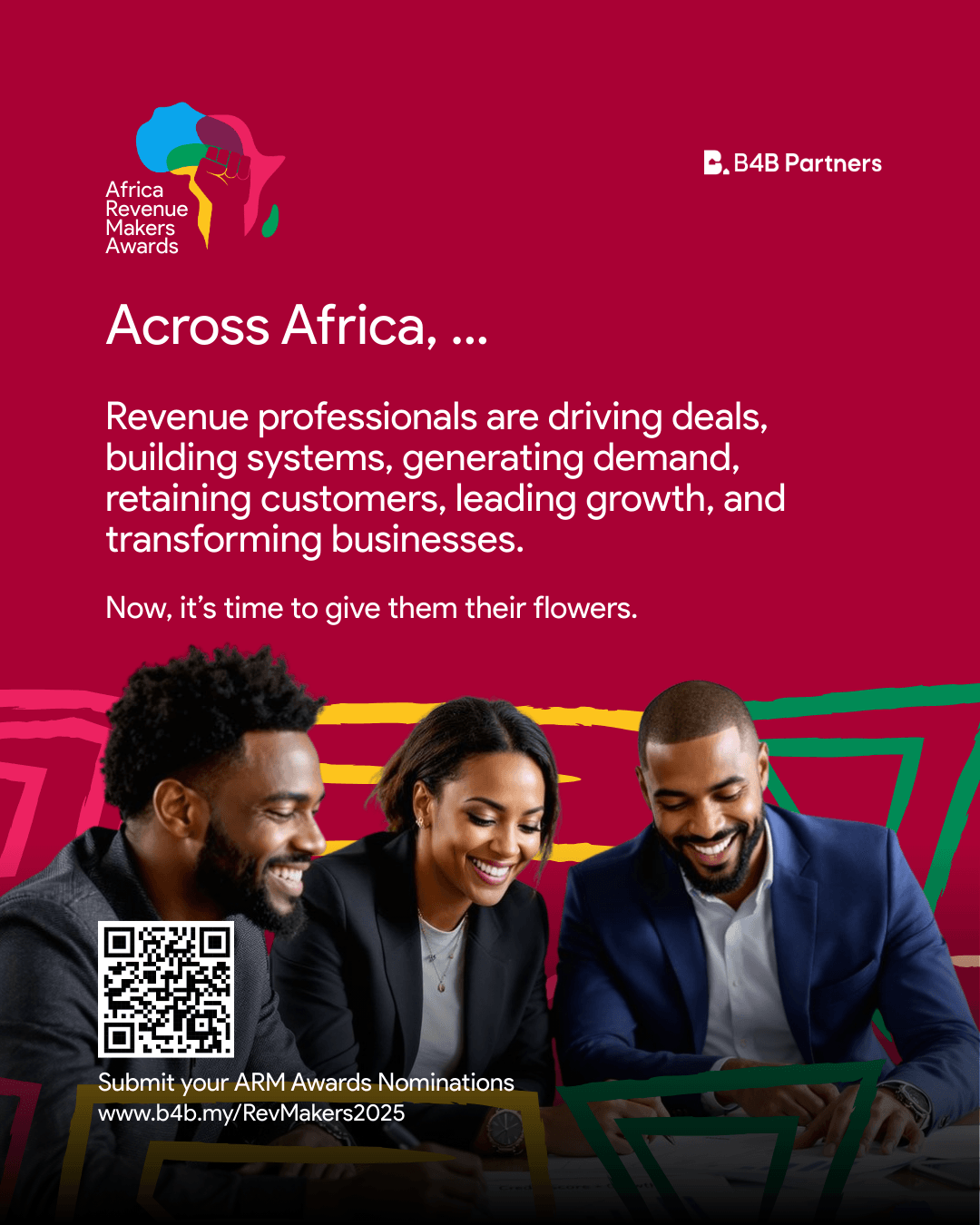When you’re an early-stage founder, sales can feel like a necessary evil.
It’s messy. It’s unpredictable. And often, it pulls you away from what you love: building the product.
But like it or not, revenue is the lifeblood of your startup. And without a clear approach to sales, you’re not building a business — you’re funding a hobby.
At B4B Partners, we’ve worked with a variety of African startups. And again and again, we see early-stage founders fall into the same traps — seven of them, to be exact.
Let’s call them what they are: The 7 Deadly Sins of Early-Stage Sales.

Sin #1: Confusing Traction with Sales
A thousand users. A waitlist. Demo sign-ups. Social media buzz.
None of these are revenue.
Yet so many founders pitch traction that hasn’t translated into paying customers.
Repent: Focus on monetized validation. What are people actually paying for, and why? If no one is buying, you don’t have a business — you have a test.
Sin #2: Delegating Sales Too Early
Founders often hire a sales intern or junior “Business Development Executive” and hope they’ll magically bring in customers.
But early-stage sales is discovery work. It requires founder-level clarity on the problem, value prop, and buyer psychology.
Repent: Own sales yourself — at least until you’ve closed your first 20–50 deals. Then, you’ll be ready to build a sales system someone else can run.
Sin #3: Pitching Before Understanding
Too many founders open meetings with a pitch deck and talk for 20 minutes straight.
That’s not selling. That’s broadcasting.
Repent: Sell by asking questions. Understand the customer’s problem better than they do. Then position your product as a tailored solution — not a generic offering.
Sin #4: Over-engineering the Tech, Under-investing in Sales
Many technical founders spend 90% of their time shipping features, and 10% trying to “market” them.
But without distribution, your beautiful product is a tree falling in the forest.
Repent: Rebalance your time. In the early days, sales and feedback loops are more important than code. You’re not just building product—you’re building conviction.

Sin #5: Not Charging Early Enough
“Let’s give it away for free to get users” sounds smart… until you realize people value what they pay for.
Repent: Introduce pricing early — even if it’s a discounted beta. The feedback you get from paying users is 10x more valuable than from free users.
Sin #6: Chasing the Wrong Customers
Many early founders try to sell to everyone—from big corporates to casual consumers.
This leads to feature bloat, sales confusion, and wasted energy.
Repent: Ruthlessly narrow your ICP (Ideal Customer Profile). Who is easiest to convert? Who gets the most value? Start there, dominate that segment, then expand.
Sin #7: Thinking Sales = Sleaze
This one’s personal. We’ve seen brilliant founders hold back from selling because they don’t want to seem “pushy” or “desperate.”
But here’s the truth:
Sales is service.
Sales is helping the right people get a solution to a problem they care about.
Repent: Reframe sales as discovery + alignment. If you truly believe in your product, then selling is just sharing the solution.
Sales is a Founder’s Superpower
You don’t need to be a smooth-talking closer to succeed in sales.
You need to be curious.
You need to care.
And you need a repeatable system.
That’s what we help founders build at B4B Partners — a revenue engine that doesn’t depend on guesswork, vibes, or prayer points.
Want weekly insights like this?
Subscribe to Revenue Mechanics — our no-fluff newsletter for founders, sales leaders, and growth teams across Africa.
You’ll get real frameworks, battle-tested playbooks, and behind-the-scenes lessons from working with 100+ salespeople.
Join here and start closing smarter.





